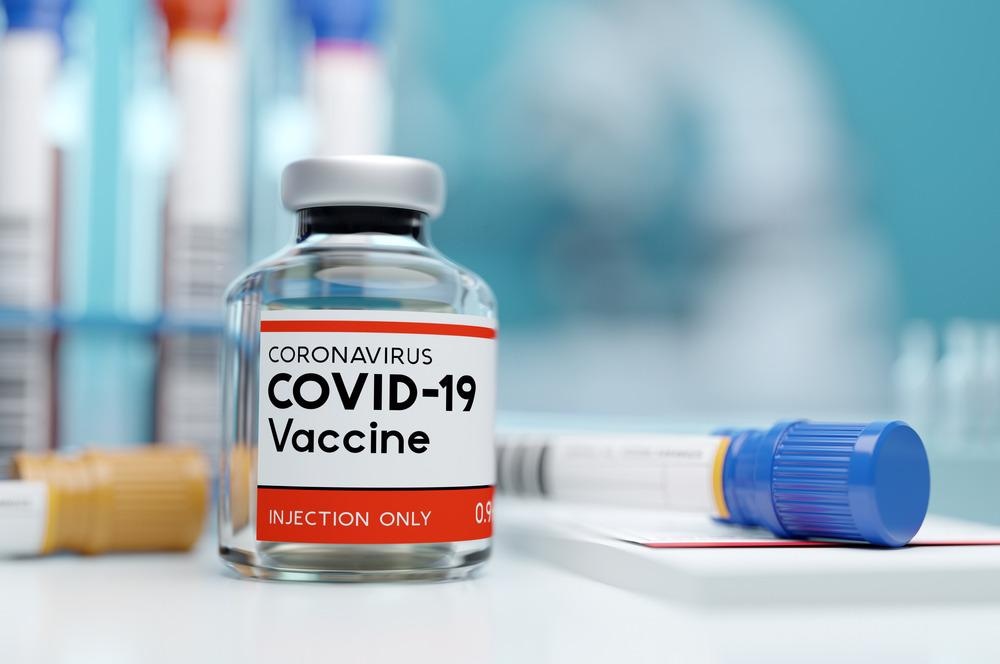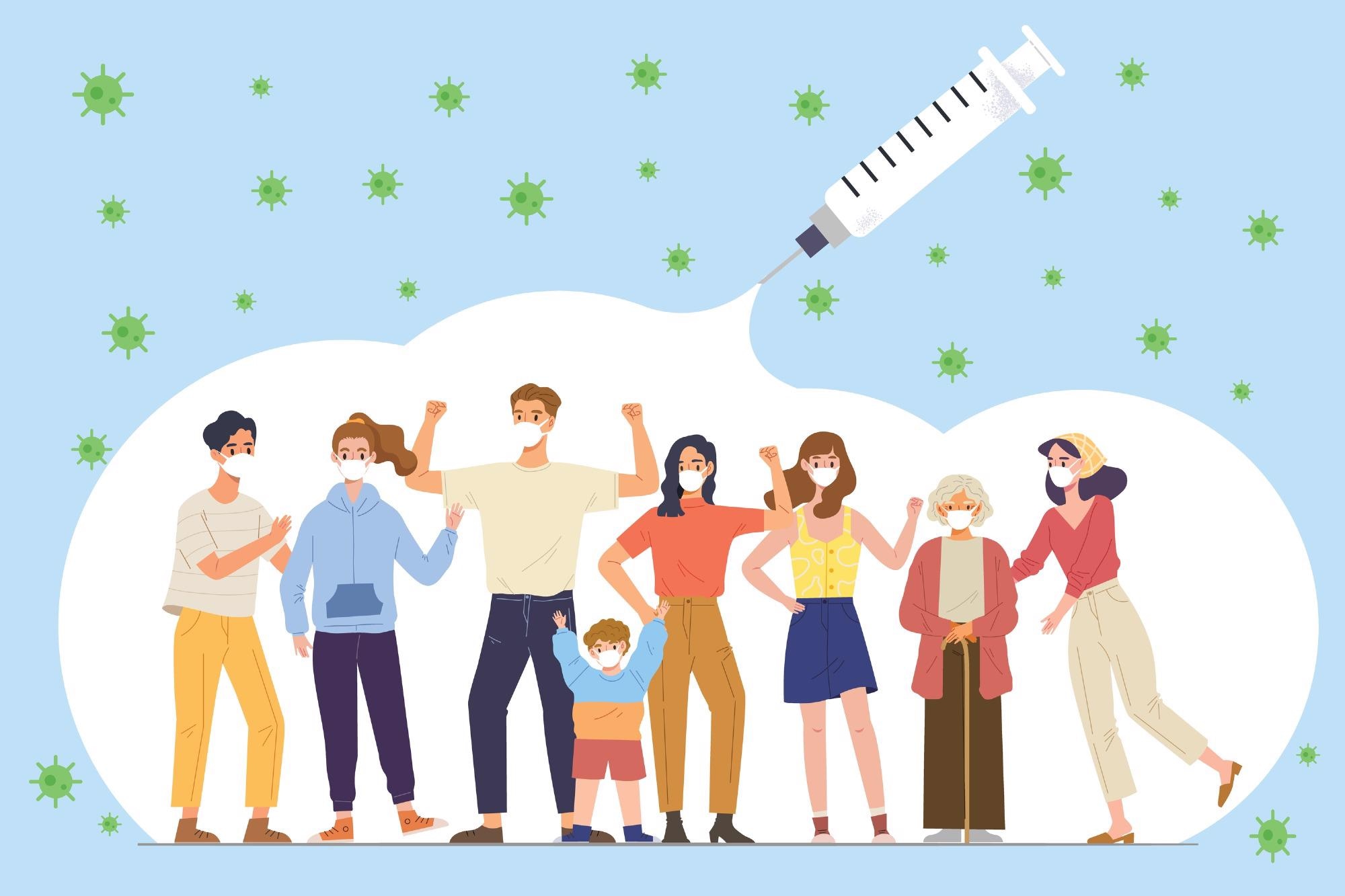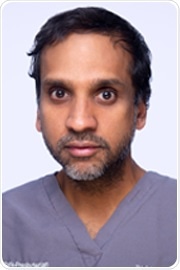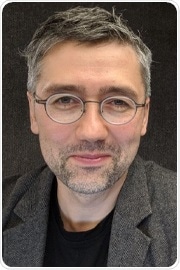I am Rishi Goyal, a professor of comparative literature and an emergency medicine physician. My Colleague Dennis Tenen is a Professor of English and media studies and a former software engineer. We first began to study vaccine hesitancy in late 2019 because at around that time the United States was in danger of losing its measles eradication status. This possibility shocked us both.
Vaccines are one of the few incontrovertible success stories in medical science and yet a disease for which we had a preventative solution was reappearing because people wouldn’t get vaccinated. We also thought that the phenomenon of vaccine hesitancy was understudied and misunderstood and would benefit from an inter-disciplinary approach that looked at root causes.
Vaccine hesitancy has been described by the WHO as one of the top ten threats to global health. How crucial is the COVID-19 vaccine in helping to curb the spread of the virus and achieve herd immunity?
Along with masks and social distancing, vaccines are the most important medical intervention in our struggle to curtail the devastating spread of COVID-19. COVID-19 is unlikely to disappear anytime soon but the combination of natural immunity and vaccine-induced immunity will lead to herd immunity if we can get the vaccination rates up.

Image Credit: solarseven/Shutterstock.com
Over the past few decades, we have seen an increase in vaccine hesitancy with some people refraining from vaccines altogether. What has led to this increase and what needs to be done to help increase education around vaccination?
One of the first mistakes in thinking about vaccine hesitancy is to treat it as monolithic. Different people are vaccine-hesitant for different reasons. Some are concerned that the materials in the vaccine may conflict with their religious views. Others have a strained relationship with the medical system because of years of neglect and poor care. Still, others are concerned with personal and bodily autonomy.
Vaccine hesitancy has been around since the first compulsory vaccine laws in colonial India and China in the 19th century. In the years before covid, vaccine hesitancy was most commonly expressed as a response to the mistaken idea that vaccines could cause autism. However, during COVID-19, the forms of vaccine hesitancy have multiplied often serving as a proxy for other contested cultural domains.
Although much research has been conducted surrounding the barriers to vaccine uptake, the basis for vaccine hesitancy is poorly understood. Why is this?
Most existing data on vaccine hesitancy comes from surveys that have been limited in terms of understanding individual psychology and emotion. Just as large political polls have become more difficult to rely on in recent years, surveys offer an incomplete picture of the complexity of vaccine hesitancy.
While there are some demographic and political patterns in vaccine hesitancy, it really cuts across race, gender, age, and class. There are rich vaccine-hesitant people and poor ones. There are white vaccine-hesitant people and there are black and Latino vaccine-hesitant people.
What role does social media play in vaccine hesitancy?
Social media is amplifying vaccine hesitancy especially amongst people who feel left out or unheard by mainstream medicine. One of the more interesting trends we noted was vaccine-hesitant posts by people who felt a need to chronicle idiopathic symptoms that they attribute to COVID-19 or vaccines. Symptoms like flushing or tingling are often misdiagnosed or ignored by health care professionals. Many of these people have concerns and want to be heard.
Social media can create a space where they can share their feelings, hesitations, or concerns in a sympathetic space. But social media can also be nefarious. Sometimes bad actors—individuals like “The disinformation dozen” or nation-states—spread misinformation about the covid vaccine to destabilize and disrupt everyday life.
Much of the misinformation and disinformation campaigns are particularly sticky—they offer emotional content that people tend to click on and forward more than they do official sites like the CDC or the WHO.

Image Credit: Anishka Rozhkova/Shutterstock.com
You are currently involved in a Columbia World Project surrounding COVID-19 vaccine hesitancy. Can you tell us more about this project and what its aims are?
Our project is building and analyzing the largest database of online vaccine-hesitant language. We are using data-science tools such as machine learning to reveal language patterns that help the different kinds of vaccine hesitancy like those based on political grounds or distrust of governments and corporations. But our analysis also isolates small-scale linguistic features like the usage of metaphors, repetition, humor, voice, and other figures of speech.
We approach language as data and believe that only by analyzing the language of vaccine hesitancy will we understand it and suggest ways to inspire vaccine confidence.
Please can you tell us how this project is being carried out and what you hope to discover?
We have been collecting messages from a range of internet sites including natural parenting forums, Reddit subgroups, Facebook pages, and even the conservative social media app Parler. Our lab members which include undergraduates, post-docs, medical humanities fellows, and computer scientists have been reading many of these posts by hand as well as visiting anti-vax rallies and campaigns to develop hypotheses and ideas.
Alongside this more traditional approach, we are developing algorithms to analyze the database as a whole. We are performing basic analytics like word counts and frequencies but also more complicated natural language processing analytics like topic modeling and sentiment analysis.
The ongoing COVID-19 pandemic has taught us how crucial collaboration is to the world. How can scientists, public health officials, and community leaders all work together to increase the public’s confidence in the COVID-19 vaccine?
Complex problems require interdisciplinary solutions. COVID-19 is a problem for humanists and architects as much as it is a problem for physicians and vaccine manufacturers. Our current approach to problems is too siloed. We need to enable conversations across disciplines.

Image Credit: Madua/Shutterstock.com
Do you believe that your approach could be applied to future vaccination strategies if successful?
Absolutely. We need to continue to listen to vaccine-hesitant chatter online so we can understand it and develop counter-messaging. Over the last year, vaccine-hesitant language and logic have undergone rapid and significant shifts. It’s important to monitor and respond to these changing patterns.
What are the next steps for your research into COVID-19 vaccine hesitancy?
We are currently developing a precision public health messaging strategy derived from the data we have collected and analyzed. We are actively crafting messages and are working with two public health partners, the Maine CDC and the Ulster County Department of Health, to test their efficacy in the real world.
Where can readers find more information?
About Professor Rishi Goyal
Rishi Goyal, MD, Ph.D. is Director of the Medical Humanities major at the Institute for Comparative Literature and Society at Columbia University, Attending Physician in the Department of Emergency Medicine at Columbia University Irving Medical Center, and Visiting Professor at the University of Southern Denmark in Odense. 
Professor Goyal completed his residency in Emergency Medicine as Chief Resident while finishing his Ph.D. in English and Comparative Literature. His research interests include the health humanities, the study of the novel, and medical epistemology. His writing has appeared in The Living Handbook of Narratology, Aktuel Forskning, Litteratur, Kultur og Medier, and The Los Angeles Review of Books, among other places.
He is a Co-Founding Editor of the online journal, Synapsis: A Health Humanities Journal, Co-Founding Director of the Health Language Lab, and a recipient of a National Endowment for the Humanities grant. He is currently leading the Columbia World Project Increasing COVID-19 Vaccine Confidence with Professor Dennis Yi Tenen.
About Professor Dennis Yi Tenen
Dennis Yi Tenen is an associate professor of English and Comparative Literature at Columbia University. His teaching and research happens at the intersection of people, texts, and technologies. A long-time affiliate of Columbia’s Data Science Institute and formerly a Microsoft engineer and a Berkman Center for Internet and Society Fellow, his code runs on millions of personal computers worldwide. Tenen received his doctorate in Comparative Literature at Harvard University under the advisement of Professors Elaine Scarry and William Todd.
A co-founder of Columbia’s Health Language Lab and the editor of the On Method book series at Columbia University Press, he is the author of Plain Text: The Poetics of Computation (Stanford University Press, 2017). His recent work appears on the pages of Modern Philology, New Literary History, Amodern, boundary2, Computational Culture, and Modernism/modernity on topics that include literary theory, the sociology of literature, media history, and computational narratology. His next book concerns the creative limits of artificial intelligence.